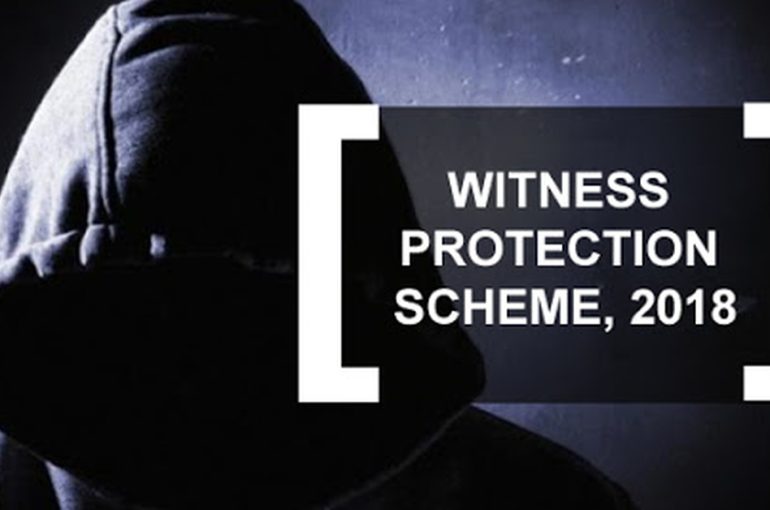SUPREME COURT REASSERTS PRINCIPLES ON BAIL CANCELLATION AND WITNESS PROTECTION SCHEME

The Supreme Court, in a recent pronouncement in Phireram v. State of Uttar Pradesh & Anr. [Criminal Appeal No. 3830 of 2025], has delivered a detailed judgment clarifying the interplay between Witness Protection Scheme, 2018 (WPS) and the cancellation of bail, particularly when accused persons are alleged to have threatened witnesses.
This decision, delivered by the Division Bench of Justices JB Pardiwala and Sandeep Mehta, not only addresses recurring procedural misapplications in bail cancellation matters but also underscores the distinct remedial purpose of witness protection vis-à-vis the established powers of criminal courts on bail.
BACKGROUND OF THE CASE
The Appeal concerned the High Court’s disposal of a bail cancellation plea by the Original Complainant (Phireram) against the Accused, who was released on bail in a case involving grave offences under Sections 302, 201, 364, 120B read with 34 of the IPC.
The primary grievance was that, after being released on bail, the Accused allegedly began threatening witnesses, prompting two new FIRs by a key witness, Chahat Ram. Despite the accusations, the High Court, referencing the Witness Protection Scheme, 2018, declined to cancel the bail and suggested the Complainant seek protection under the Scheme instead.
SUPREME COURT’S REASONING AND FINDING
- Bail Conditions vs. Witness Protection Scheme: The Supreme Court squarely addressed the misconception prevalent in certain lower courts, particularly the Allahabad High Court, that the WPS is a substitute or alternative to cancellation of bail. The Bench emphasized that threats made to witnesses by Accused while on bail are a direct violation of bail terms, and remedy for such misconduct lies in cancellation of bail. The Scheme is curative and exists to safeguard witnesses against intimidation but does not override the established legal process for bail cancellation. Hence, the provisions of the WPS have to be read in conjunction with the criminal law and the terms on which the bail was granted.
- Legislative and Judicial Context: Tracing the evolution of witness protection, the Judgment reviews numerous Law Commission reports, Committee Recommendations, and Judicial Precedents, highlighting the failure of mere penal provisions on bail to address the complex realities of witness intimidation. It refers extensively to cases such as Zahira Habibullah Sheikh v. State of Gujaratand Mahender Chawla v. Union of India, illustrating that the Witness Protection Scheme is meant to bolster, not replace, the court’s powers to enforce bail conditions and secure fair trials.
- Preventive vs. Curative Function: The Court clarified that bail cancellation is a preventive and supervisory judicial function, intended to thwart further abuse of liberty and contamination of evidence, while the WPS is a remedial measure for addressing actual threats. These remedies co-exist with the Scheme supporting witnesses, whereas bail cancellation acting as a deterrent against misconduct by the accused. Notably, the Judgment condemned the practice of passing “template orders” by several courts that routinely direct parties to pursue the Witness Protection Scheme, side-stepping judicial oversight of bail conditions.
KEY TAKEAWAYS FROM THE JUDGEMENT
- Cancellation of bail and witness protection are not interchangeable remedies and both must be independently used where the facts warrant.
- Courts remain duty-bound to act against Accused persons who misuse bail by intimidating witnesses, regardless of the existence of the Witness Protection Scheme.
- The Scheme operates to protect witnesses but does not restrict courts from revoking bail to preserve the sanctity of trial.
- Judiciary should not avoid their responsibility by saying that Executive Protection Schemes will take care of things. Instead, courts must actively supervise and control bail grants and cancellations to make sure justice is done.
- The decision lists circumstances warranting bail cancellation, including threats to witnesses, tampering with evidence, and any supervening events undermining fair trial.
DIRECTIONS AND BROADER IMPACT
- The Supreme Court set aside the High Court’s Order and remanded the case for reconsideration of bail cancellation on its own merits and ensure fair hearing for all parties.
- The Judgment ordered the circulation of its decision to all High Courts, marking its intent to correct procedural misconceptions nationwide and reinforce judicial diligence in bail matters.
CONCLUSION
By unequivocally distinguishing the roles of witness protection and bail cancellation, the Supreme Court has reaffirmed the Court’s essential duty in securing fair trials and preventing abuse of judicial concessions. The Judgment is poised to have enduring effects on criminal jurisprudence in India, especially in fortifying witness testimony and curbing the intimidation tactics of accused persons on bail.
Soumen Dash
(Legal Associate)
The Indian Lawyer & Allied Services
Please log onto our YouTube channel, The Indian Lawyer Legal Tips, to learn about various aspects of the law. Our latest Video, titled Legal Aspects of Export in India| Export Laws Explained|Advocate Sushila Ram Varma | can be viewed at the link below:





































Leave a Reply